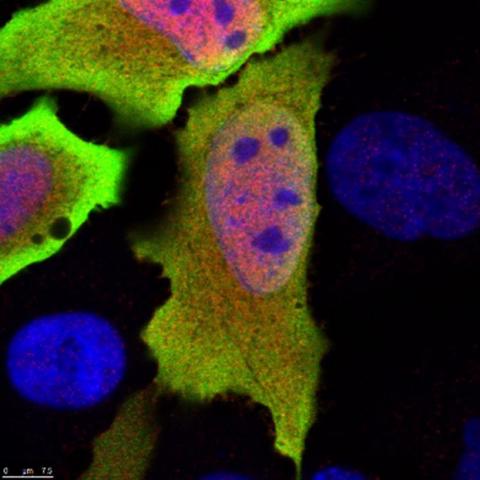Our immune system produces proteins called cytokines that help fortify the immune system and work to prevent viruses and other pathogens from replicating and causing disease. C6 regulates this process by switching off the production of certain cytokines to stop our immune response from spiralling out of control.
"It's exciting to consider that C6 has existed for more than 500 million years, preserved and passed down from simple organisms all the way to humans. But only now are we gaining insights into its importance," says co-author Dr. Rebecca Ambrose of the Hudson Institute of Medical Research.

Credit: CSIRO
Having discovered the function of C6, the researchers are awarded the privilege of naming it, and are enlisting the help of the community to do so.
"The current name, C6orf106, reflects the gene's location within the human genome, rather than relating to any particular function," says Dr. Cameron Stewart of CSIRO Australia. "We think we can do better than that, and are inviting suggestions from the public."





Comments